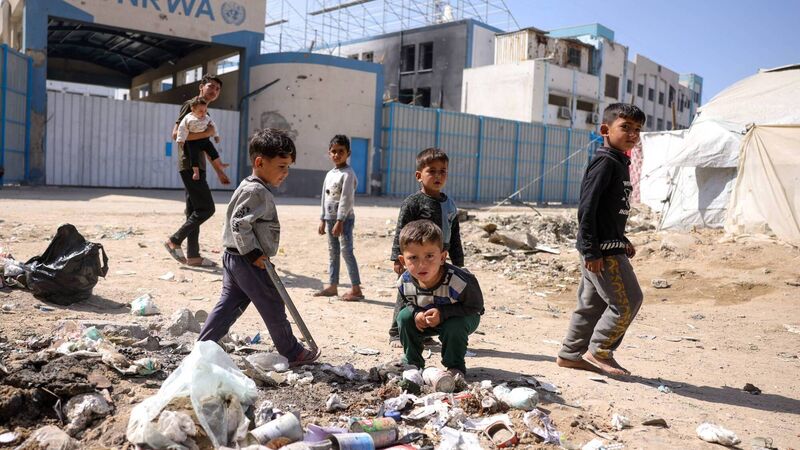Irish Examiner view: How did we let the situation in Gaza come to this?

Children play around waste in front of the closed UN agency for Palestinian refugees headquarters in Gaza City, on Monday. Picture: Bashar Taleb/AFP/Getty
Try from €1.50 / week
SUBSCRIBEHow did it come to this? To where the people of Gaza are no longer on the brink, but well beyond it and falling into the precipice? To where thousands of babies could die in days because vital aid has been kept away from them?
And yet even the most casual observer could have predicted this once the scale of the Israeli retaliation became apparent, and certainly after most of Gaza’s 2.3m people became displaced. Deaths are north of 53,000 confirmed but we may never know the full toll, or how many bodies are buried under the rubble.
Already a subscriber? Sign in
You have reached your article limit.
Annual €130 €80
Best value
Monthly €12€6 / month
Introductory offers for new customers. Annual billed once for first year. Renews at €130. Monthly initial discount (first 3 months) billed monthly, then €12 a month. Ts&Cs apply.
CONNECT WITH US TODAY
Be the first to know the latest news and updates
Newsletter
Sign up to the best reads of the week from irishexaminer.com selected just for you.
Newsletter
Keep up with stories of the day with our lunchtime news wrap and important breaking news alerts.
Newsletter
Sign up to the best reads of the week from irishexaminer.com selected just for you.
Tuesday, February 10, 2026 - 10:00 AM
Tuesday, February 10, 2026 - 12:00 PM
Monday, February 9, 2026 - 5:00 PM
© Examiner Echo Group Limited